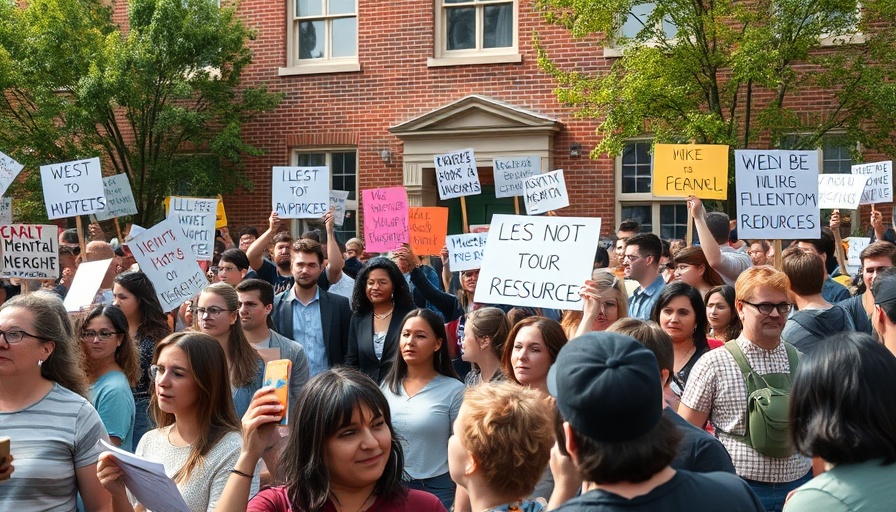
Mayor Lurie's New Plan: Balancing Treatment Needs in San Francisco
The recent announcement from Mayor Daniel Lurie regarding San Francisco's Behavioral Health Center has sparked significant local debate. The plan to convert existing treatment beds raises fundamental questions about patient care, funding, and the future of mental health services. Notably, while 73 new treatment beds are promised, this initiative entails the removal of 97 current beds, causing much concern among care providers and patients alike.
Understanding the Shift: The Need for Locked Beds
With the proposal to create 57 ‘locked’ beds for patients requiring comprehensive psychiatric care, there is an effort to address a growing issue in mental health services. As patients with severe conditions often need round-the-clock supervision, transforming these beds caters specifically to this demographic. However, the displacement of 82 current residents raises questions about how effectively these new beds will compensate for the loss experienced by long-term patients. The emotional impact of patients leaving homes where they have lived for years cannot be understated.
The Displacement Dilemma: Voices from the Field
Jennifer Esteen, a psychiatric nurse and union representative, voiced significant concern about the displacement of residents, many of whom have lived in the Behavioral Health Center for over a decade. Esteen highlights that the current patients are particularly vulnerable, with many unable to manage daily activities like cooking or medication on their own. She suggests that merely finding new shelter for these residents does little to address the deeper issues of care and accessibility within a rapidly changing health landscape.
What Does This Mean for Patient Safety and Well-Being?
Nurses warn that moving patients may increase risks for homelessness, substance use relapse, or deterioration of mental health. A recent letter from the Department of Public Health reassured residents that they wouldn't lose their housing; however, skepticism remains about whether adequate replacements exist within the city. The targeted neighborhoods for new placements—like the Sunset and Mission districts—may not necessarily cater to the specific needs of these individuals, which raises significant public safety concerns.
Funding and Future Implications for San Francisco's Mental Health Services
The renovation, funded by $21.3 million from the state, brings into question the long-term viability of such funding strategies when prioritizing certain types of care over others. There is a fear that focusing on acute care needs may neglect the foundational services crucial for residents who require long-term, stable housing solutions.
A Call for Community Engagement and Advocacy
Advocates for mental health services are calling on the community to engage in discussions with local government representatives. Stakeholders argue for a balanced approach that considers the needs of both acute and long-term care patients. To optimize public responses and ensure that all voices are considered, increased transparency in planning and execution is essential.
Conclusion: Navigating Towards Better Mental Health Solutions
As the city moves forward with these significant changes, it raises a vital conversation about the future of mental health care in San Francisco. Striking the right balance between urgent care and the stability of long-term residents will be key in fostering a compassionate, efficient health care system. To ensure that everyone has a voice in these important decisions, residents and advocates alike are encouraged to reach out to their city representatives and stay engaged with local news updates.
Get Involved: Advocate for Mental Health Awareness
The recent policy changes in San Francisco highlight the need for ongoing advocacy in our mental health systems. Residents are encouraged to connect with local advocacy groups to push for comprehensive solutions that meet the diverse needs of our community.
 Add Row
Add Row  Add
Add 




 Add Row
Add Row  Add
Add 

Write A Comment